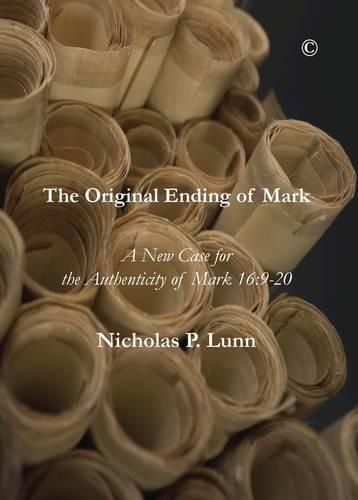Readings Newsletter
Become a Readings Member to make your shopping experience even easier.
Sign in or sign up for free!
You’re not far away from qualifying for FREE standard shipping within Australia
You’ve qualified for FREE standard shipping within Australia
The cart is loading…






Although traditionally accepted by the church down through the centuries, the longer ending of Mark’s Gospel (16:9-20) has been relegated by modern scholarship to the status of a later appendage. The arguments for such a view are chiefly based upon the witness of the two earliest complete manuscripts of Mark, and upon matters of language and style. This work shows that these primary grounds of argumentation are inadequate. It is demonstrated that the church fathers knew the Markan ending from the very earliest days, well over two centuries before the earliest extant manuscripts. The quantity of unique terms in the ending is also seen to fall within the parameters exhibited by undisputed Markan passages. Strong indications of Markan authorship are found in the presence of specific linguistic constructions, a range of literary devices, and the continuation of various themes prominent within the body of the Gospel. Furthermore, the writings of Luke show that the Gospel of Mark known to this author contained the ending.Rather than being a later addition, the evidence is interpreted in terms of a textual omission occurring at a later stage in transmission, probably in Egypt during the second century.
$9.00 standard shipping within Australia
FREE standard shipping within Australia for orders over $100.00
Express & International shipping calculated at checkout
Although traditionally accepted by the church down through the centuries, the longer ending of Mark’s Gospel (16:9-20) has been relegated by modern scholarship to the status of a later appendage. The arguments for such a view are chiefly based upon the witness of the two earliest complete manuscripts of Mark, and upon matters of language and style. This work shows that these primary grounds of argumentation are inadequate. It is demonstrated that the church fathers knew the Markan ending from the very earliest days, well over two centuries before the earliest extant manuscripts. The quantity of unique terms in the ending is also seen to fall within the parameters exhibited by undisputed Markan passages. Strong indications of Markan authorship are found in the presence of specific linguistic constructions, a range of literary devices, and the continuation of various themes prominent within the body of the Gospel. Furthermore, the writings of Luke show that the Gospel of Mark known to this author contained the ending.Rather than being a later addition, the evidence is interpreted in terms of a textual omission occurring at a later stage in transmission, probably in Egypt during the second century.